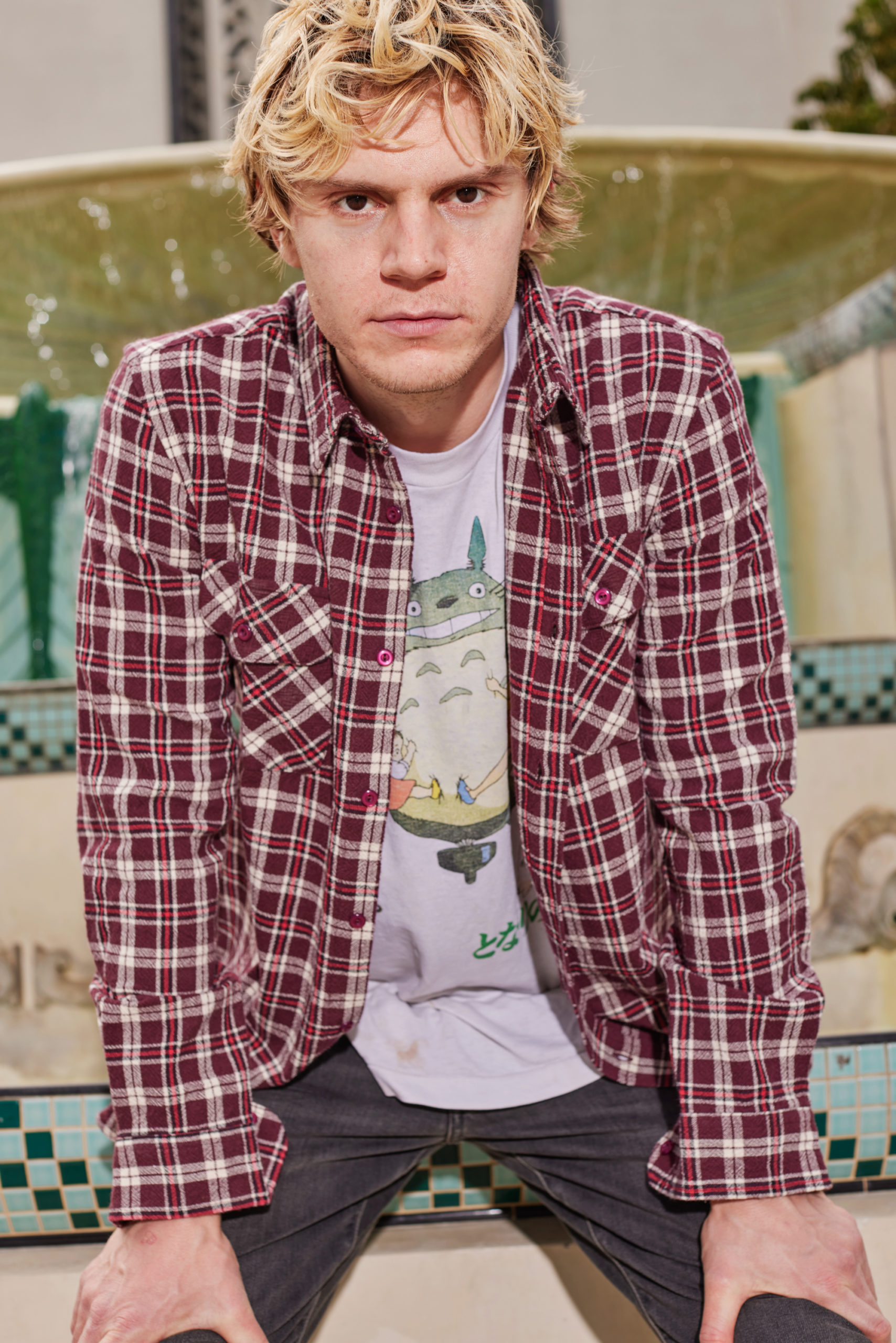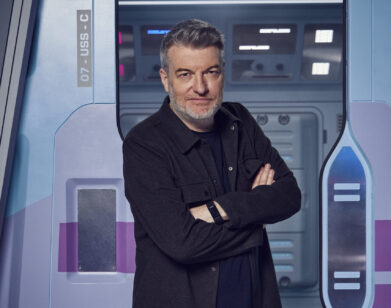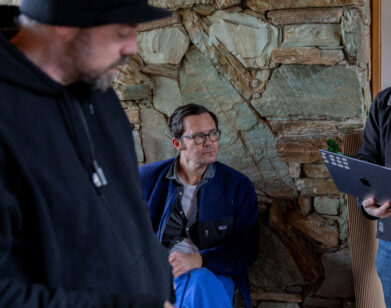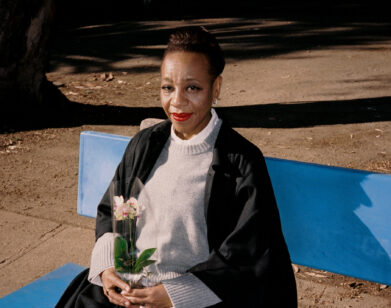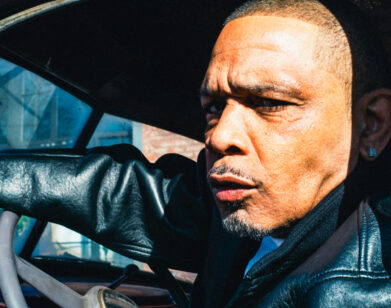Leaving Easttown
Evan Peters and Billie Lourd Discuss the Art of Dying Onscreen
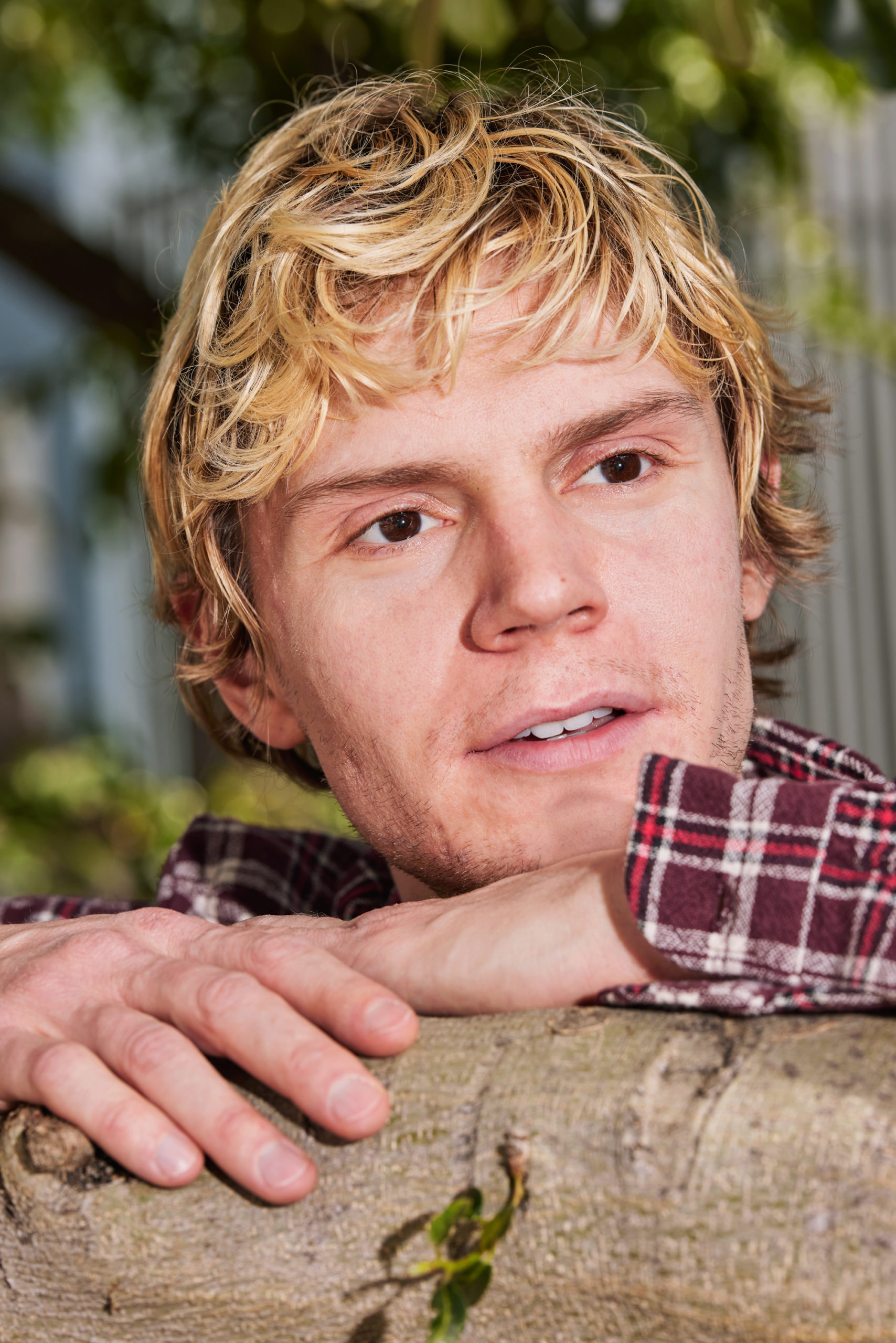
Our initial impulse is to begin this article with a spoiler warning, but since every sentient being is currently watching Mare of Easttown, proceed accordingly. Over the last month and change, the HBO crime drama has monopolized the internet’s bandwidth, with breathless speculation over its central mystery (Who killed Erin McMenamin?!?!) and a fascination with its Delco accents that culminated in an SNL sketch. A chunk of the show’s appeal can also be traced to Evan Peters, the 34-year-old actor who played Detective Colin Zabel as a puppy dog with a badge, serving as the perfect counterpoint to the show’s hard-edged title character Mare Sheehan, played by Kate Winslet. But just as fans were beginning to really root for Detective Zabel, Peters, who was fresh off the heels of his message board-melting appearance in last winter’s WandaVision, once again found himself at the center of a shocking plot twist that left viewers reeling. It was a lot to process, even for him, so Peters hopped on the phone with his former American Horror Story costar Billie Lourd to discuss what it’s been like to upend expectations, how he prepared for an instantly iconic drunk scene, and the art of dying onscreen. —EVELINE CHAO
———
BILLIE LOURD: Let me set the scene for you: I’m sitting outside my house in my never-washed car, because that’s the only silent place in my home, and it’s not even in my home. I have a wireless breast pump with me, so if you hear a weird sound, that’s what that is.
PETERS: I’m in my bedroom, currently in my PJs. I worked a night shoot last night and am doing a night shoot again tonight. So, I’m drinking coffee and trying to wake up and get back into it.\
LOURD: I know how that goes. My hands are on my temples for you. Okay, Ev, I’m fucking obsessed with Mare of Easttown. I do not watch any shows because if I ever have free time, it’s usually spent napping or just lying in a silent room. But I failed all my nap times with watching this show. You’re a fucking genius.
PETERS: Thanks Billie. I appreciate it.
LOURD: Tell me the story of how it all came to be.
PETERS: They sent me the script and it said that Kate Winslet was going to be the lead, and that it was an HBO crime drama. So I was like, dude, I’ve got to really work on this one. I did the self-tape thing, so it was super awkward and weird.
LOURD: It was a self-tape? Wow.
PETERS: Yeah, I sent that in, and then the director and writer and showrunner were like, “You want to have some lunch?” And I was like, “They’re going to tell me to redo the tape, I know it.” And then they offered me the part, thankfully.
LOURD: That’s when you know you’re a really good actor, is when you get a part off a self-tape. I’ve never done that.
PETERS: Oh come on, you’re a great actress. You can do that single-tear thing.
LOURD: I do have a single-tear thing!
PETERS: That’s incredibly hard to do.
LOURD: Only when there’s a promise of bratwurst at Krafty’s will I do a single tear. What was the scene that you had to tape?
PETERS: The earlier scenes, where I’m coming in and meeting Mare and she just does not want me there at all.
LOURD: I was going to say, if you had to do that drunk scene, or the breakdown scene, that would be a nightmare. Did you know you were going to die? How did that make you feel? I’m a therapist now.
PETERS: It was a little stressful trying to navigate that. You had a finite amount of time to cram in all this stuff. Because you knew how it was going to go, and you wanted it to have an interesting arc, but… poor Zabes.
LOURD: Dude, it was fucking devastating. Zabel is so sweet, and you’re like, “No, he was on such a fucking upswing!” You’ve gotten shot in the head a couple of times now, which is pretty rare for an actor.
PETERS: Yeah, he’s got to work on that quick draw. But it was a cool scene to shoot. We kind of stretched out time and it was like The Good, the Bad and the Ugly, where it was a stare-down, and you’re like, “God, this feels like a really long time to be staring at people.” But Craig, the director, was like, “We’ll edit it. It’ll look good.” And nowadays, everything’s CGI, so back in the day they probably would have used blanks to help with that, but it was just a click. Or the other actor going, “Bang!” and all of a sudden you would have to get shot in the head. And you’re like, “What are we, 12, playing with guns?” It was such an awesome set that they built. They found this property that was like an abandoned bar, with a house on the back. And then set dressing came in and made it that amazing, creepy, disheveled, messed-up house that it was. So it was really cool to be in there and feel like, “Oh my God, we got the guy.”
LOURD: It’s amazing to watch you piece it together and look at each other and hear the pipe banging. It’s so suspenseful. We’ve got to talk about Kate. Can I call her Kate? Should I call her Kate Winslet? She’s so fucking magical. What was that like working with her.
PETERS: I was pretty terrified and nervous and stressed out before meeting her. I’m such a huge fan, and she’s one of the best actresses of all time. But she was so warm and down-to-earth and immediately disarming. What’s really cool is that she’s very collaborative. I thought she was going to be like, “Nope, I’m right. You’re all wrong.” You know, because she’s brilliant. But she was very open to new ideas and exploring things. I found that really reassuring, and surprising, since she’s set at such a high caliber.
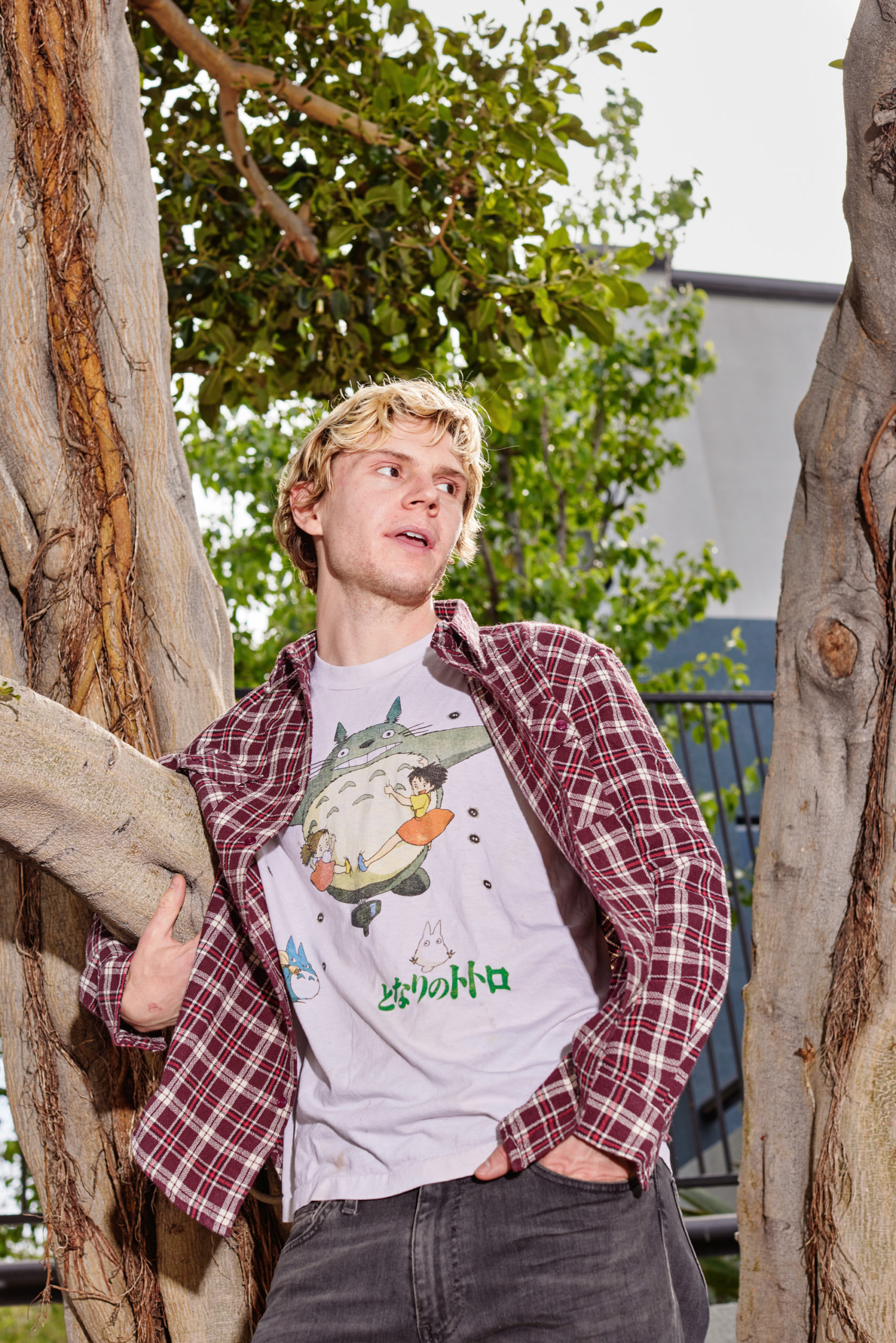
LOURD: That’s so cool to hear. I feel like every actor’s dream is to get to work with her. Did you stay in your accents all the time? I always wonder that when people do accents.
PETERS: I was in it the whole time. I’m not good enough of an actor to be able to pop in and out of it. Somebody on set said there are different levels. There’s the learning it, there’s the “I have to stay in it,” and then there’s, “I’m so good that I can pop in and out of it.” Kate was that. She was incredibly English throughout the whole thing. Like [in British accent], “Oh, hi, Zabes. How are you doing babes? You good? Everything good? Okay, great.” And then she’d be like [in Philadelphia accent], “Let’s go get a hoagie. Let’s go down to the shore and check out the store.” I was just like, oh my god. How do you do that?
LOURD: That is so trippy. I don’t think I could do that.
PETERS: No, I could not do that. She’s really impressive that way.
LOURD: What was your favorite scene to do with Kate? I have to stop calling her that. Lady Winslet?
PETERS: There were so many. The bar scene was pretty awesome because it was so improvised.
LOURD: Oh, really?
PETERS: Yeah, it was just kind of fun to be at a bar with Lady Winslet.
LOURD: That’s my dream.
PETERS: But there was another scene that I really liked too: When I first got in the car, and I’m like, “Hey, are we carpooling?” And she’s like, “Ugh, this fucking guy.” And then I get in the car and she slams on the gas and I almost smoke my head. I thought that was really fun because it was one of the earlier scenes that we shot, and it set the tone for how much Mare was annoyed at Zabel being there.
LOURD: How did you do the bar scene? Are you allowed to get drunk?
PETERS: No, you can’t get drunk unfortunately. But I would say I’ve done a ton of research over the years. You know, at a couple of your birthday parties.
LOURD: Would you rather do a death scene or a killing scene?
PETERS: Oh, that’s a hard question. It really depends on how you’re killing or dying. Dying is such a challenge, as an actor.
LOURD: I don’t like dying.
PETERS: It’s so hard. It’s like, how do you do it? And does this look believable? Can they see me breathing? It really depends on how you’re getting killed as well. There’s so many questions and so many ifs.
LOURD: Killing me in American Horror Story was such a laugh. I hope they put in parentheses, “She said sarcastically.”
PETERS: Yeah, that was a pretty horrific day.
LOURD: That was a rough one. I’ve watched it back and I can definitely see myself breathing. And the eyes are so hard, like to actually keep your eyes open. I feel like I’ve made the decision to close my eyes. Do you do open-eye or closed-eye deaths?
PETERS: I like to do a little halfsies—a little open, a little closed.
LOURD: I like it. Split the difference. Have you been on the streets since Zabel died? Do people come up and hug you and thank god that you’re actually alive?
PETERS: No. I’ve gotten some text messages that were like, “Sorry, man. You’ve got to work on that quick-draw.” I’m super stoked that people like the show.
LOURD: It’s one of those shows that’s now part of the zeitgeist. Even my baby loves it. How long did it take to shoot?
PETERS: Gosh, we started in October 2019, and then I was supposed to be done at the beginning of March 2020. I had about two or three weeks left. Then the pandemic hit and they punted it to September. I was like, “Oh man, I’ve got to keep learning this accent for six months.”
LOURD: And not eat all the double doubles in sight. You had to keep that accent and keep that bod.
PETERS: Yeah, it was a challenge.
LOURD: What do you think would have happened with Mare and Zabel if Zabel didn’t die? It’s a real thinker.
PETERS: Ooh, that is a real thinker. I think they would have gone on a few more dates and then Mare probably would’ve realized that Zabel’s not the one. Zabel would have been devastated again.
LOURD: I think they could have had a shotgun wedding in Vegas and lived happily ever after. It could have been great.
PETERS: I like that for Zabel. That sounds good.
LOURD: Do you think you would have moved to Easttown or would he have gone back?
PETERS: I think he definitely would have had to move out of his mom’s place. For sure that would have been step number one.
LOURD: Were you sad when he died or did you think that this was the perfect ending for him?
PETERS: I thought it was an interesting ending to the character. He kind of came in, and then it was so shocking, but that’s the way death is in real life. You’re never really expecting it, and then it happens.
LOURD: It’s amazing you got to know the whole arc of the character before you played him.
PETERS: Yeah, it’s rare to get all the episodes beforehand. You make a choice in episode two and then you get to episode seven and you’re like, “Oh wait, that was totally wrong, what I did in episode two… Can we go back and reshoot that?” And they’re like, “No.”
LOURD: Did knowing the ending affect how you played him? He was so lovable anyway, but did knowing he was going to die make you play him even more lovably, if that’s a word?
PETERS: Yeah, that did play into it. There was talk about making him a little bit more arrogant and cocky. But I thought, when he dies, it’d be more tragic if he wasn’t that. So we tried to make him a little bit bumbling and not as good of a detective and really trying. We wanted it to be as shocking and sad as we could.
LOURD: Did you do any actor-y stuff? Like, a cologne you wore? Or did you wear a special hat?
PETERS: That’s so funny. I wish I wore a special hat to work every day , like an old-school 1940s detective hat. I did always have my coffee mug. There was a little bit of a Zabel-mug thing going on. And there were rituals. I would write in the mornings and try to get into it, stuff like that. But god, I wish I wore a hat.
LOURD: We should incorporate that into our future careers, to make sure we have a hat for every role we play. And then you could have a case at your house of all the hats you wore.
PETERS: That’s so goddamn funny.
LOURD: People are going to be like, “Billie Lourd is a psychopath.”
PETERS: Oh, you know what I did do? I wore a cross. You can’t see it, but when he died, I wanted you to see the cross on his neck. He’s got this weird thing with religion where he was raised religious, but then being in the line of work that he’s in and seeing all this death and awfulness, you start to question that. And then his mom is very religious. So I wanted him to be, underneath it all, a little bit religious and hopeful and needing the protection of god when he went out into the field.
LOURD: That’s way better than a hat.
